Battle of Trevalga: Fate of historic village rests on archaic ‘Royal lives clause’
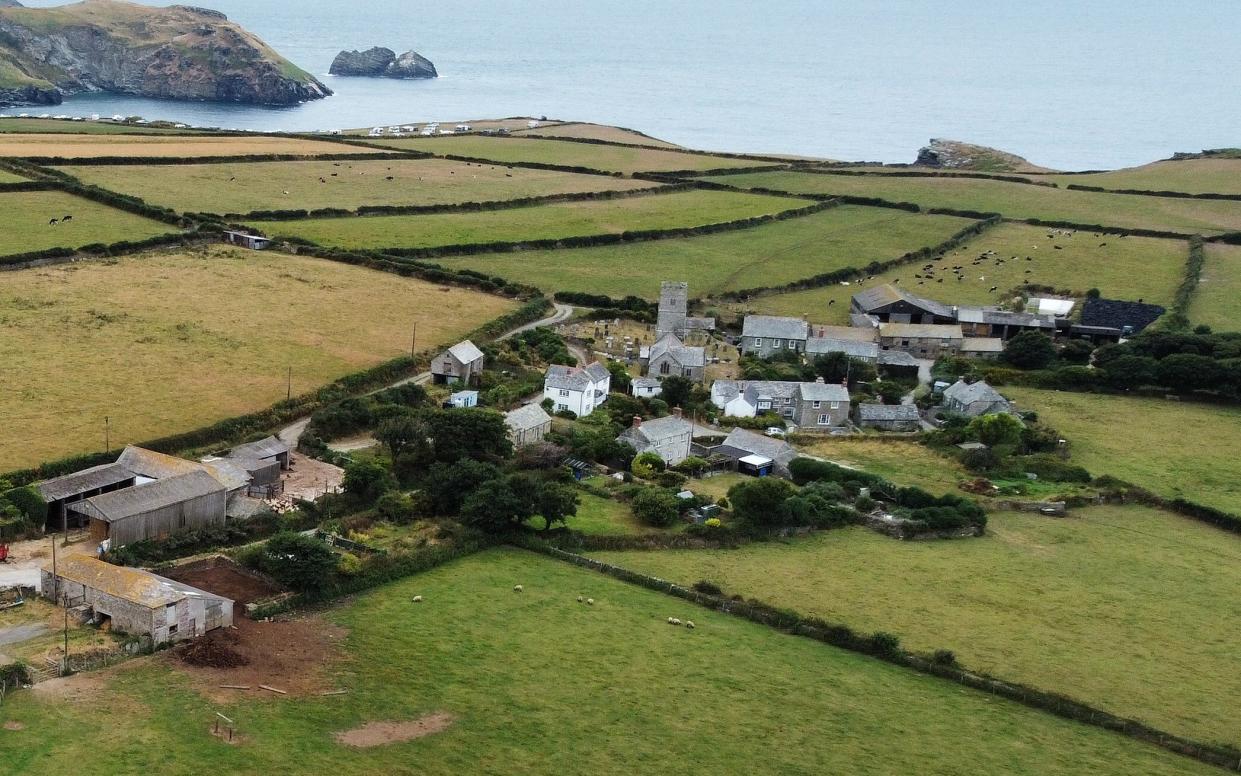
A battle has broken out over the fate of a Cornish hamlet which has been put up for sale.
Trevalga, a coastal parish nestled between Boscastle and Tintagel, has barely changed since Gerald Curgenven, a former teacher at Marlborough College, bought the manor in the 1930s and steadily acquired surrounding land, adding it to the property.
But now, the trust which owns the estate has put it on the market and the sale rests on a rare piece of law relating to the lives of Prince Charles, Princess Anne, and their second cousins Prince Michael, Princess Alexandra and the Dukes of Kent and Gloucester.
The trustees claim that when they die, the trust is automatically dissolved. The trustees argue that this creates an endpoint for the trust and one that can therefore be brought forwards because they believe the estate is no longer viable.
Residents dispute this, claiming the trust is charitable and therefore lasts in perpetuity. This would prevent the sale of the village.
In June, villagers received a letter informing them their homes would soon be sold as part of the £15.75 million disposal of the Manor of Trevalga.
Currently, houses are rented to locals at reasonable rates, the village untouched by waves of short-term holiday lets notorious across Cornwall.
The Manor of Trevalga was placed in a will trust more than 60 years ago following the death of its owner Mr Gerald Curgenven in 1959. The hamlet was left in trust to Marlborough College.
The trust was created so the estate could be preserved and improved 'and as far as possible not sold or broken up'.
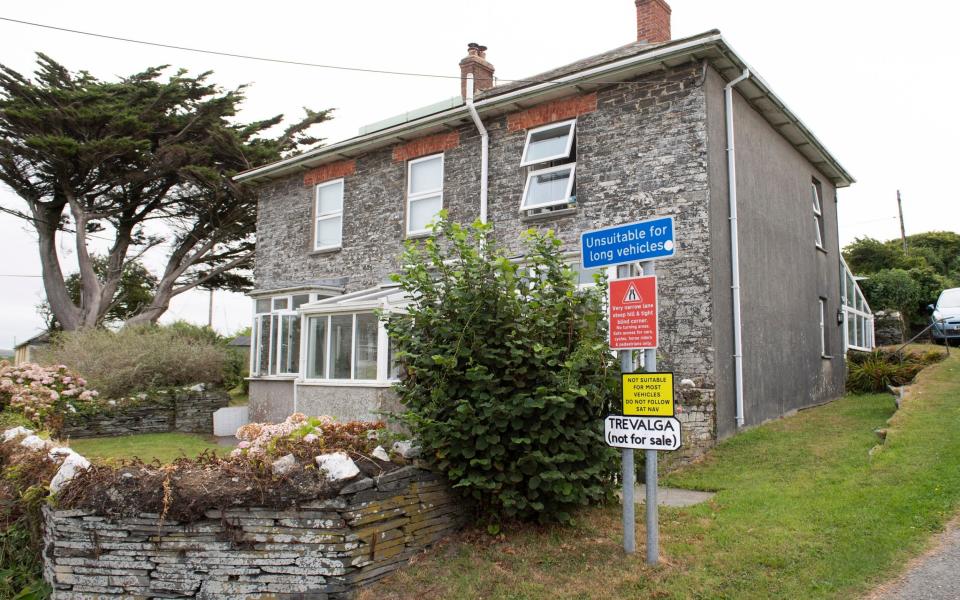
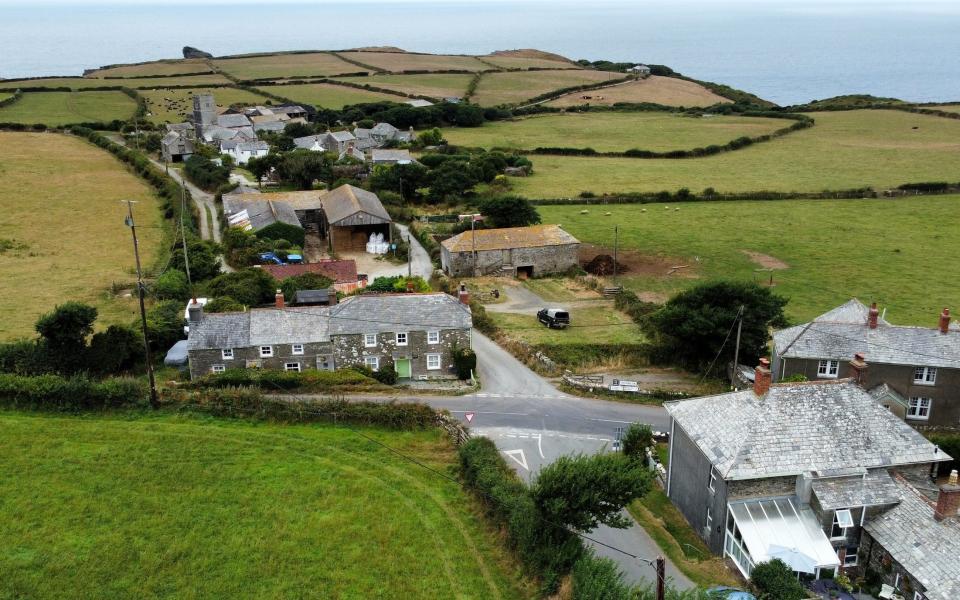
“It’s a time capsule, there’s no street lighting, no hustle and bustle, it’s beautifully peaceful, insanely gorgeous to look at,” said Serena Partrick, 38, who has lived in the village for most of her life.
Earlier this month, residents protested as a potential buyer - who flew in via helicopter - was shown around. They pinned a banner reading “ILLEGAL SALE” to the ground, which could be seen from the air as the mystery buyer landed.
Villagers fear their home’s untouched magic will be lost if the next owner decides to pursue the “redevelopment” and “further income generation” suggested by agent Savills in the estate’s sales brochure.
‘A perpetual trust is not possible within the law’
However, the trustees claim that the village is subject to a “Royal lives clause”, an obscure point of common law states that the endpoint of a trust is 21 years after the death of the last descendant of the monarch named at the trust’s creation – either the reigning king or queen, or one who died previously.
“You can’t have a perpetual trust, that’s not possible within the law,” said John Wakeham, one of the trustees, at a village meeting in June, according to people present. “The life of the trust is tied to Royal lives, and specifically to the death of the last surviving descendant of King George V who was alive at the time of the establishment of the trust.”
He went on: “That includes surviving Gloucester children, but more likely ... Prince Charles and Princess Anne.”
Trustees claim they can sell the estate to be developed because the trust is subject to a Royal lives clause tied to George V, who died in 1936.
In 1959, when the trust was established, there were 12 living descendants of the late George V.
The clause originated during a 17th-century dispute between Henry, the Earl of Arundel, and his younger brother.
Henry, the second son, and Charles, his younger brother, had been left property by their father the Duke of Norfolk.
The Duke’s will set out that some property must transfer from his eldest and mentally challenged son after his death, onto Henry, and then onto Charles.
However, Henry refused to give up the property to Charles. The latter sued his brother, and the House of Lords upheld Henry’s case, deciding that his father’s will conditions could not last forever after his death.
The case helped to shape the “rule against perpetuity”, meaning that private trusts cannot last forever. This prevents money from being tied up in trusts forever and stops assets in the present being controlled by the wishes of people who died hundreds of years ago.
A further case in 1833 - between a Cadell and Palmer - established the 21-year timeframe, which uses the Royal family to set a trust’s endpoint.
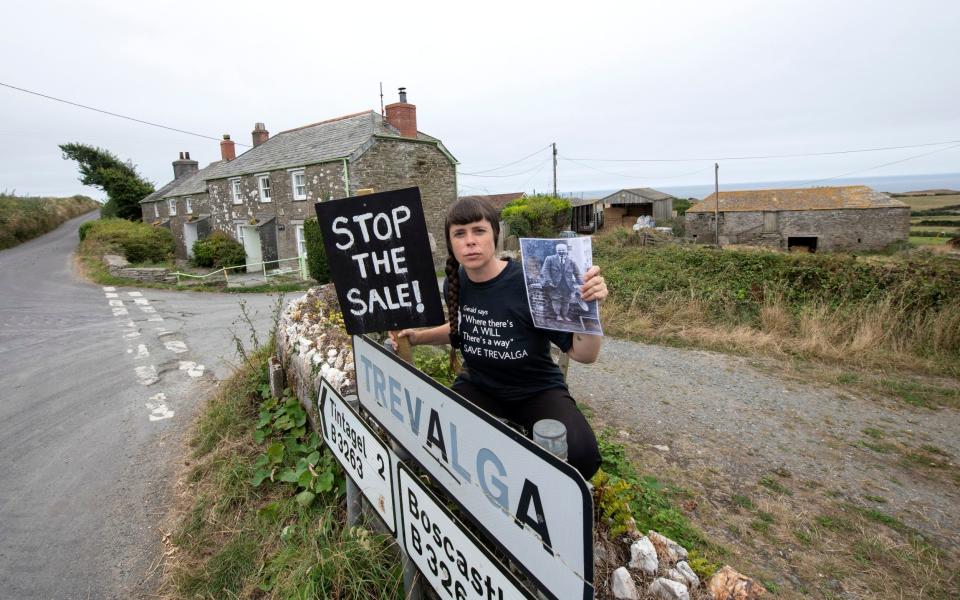
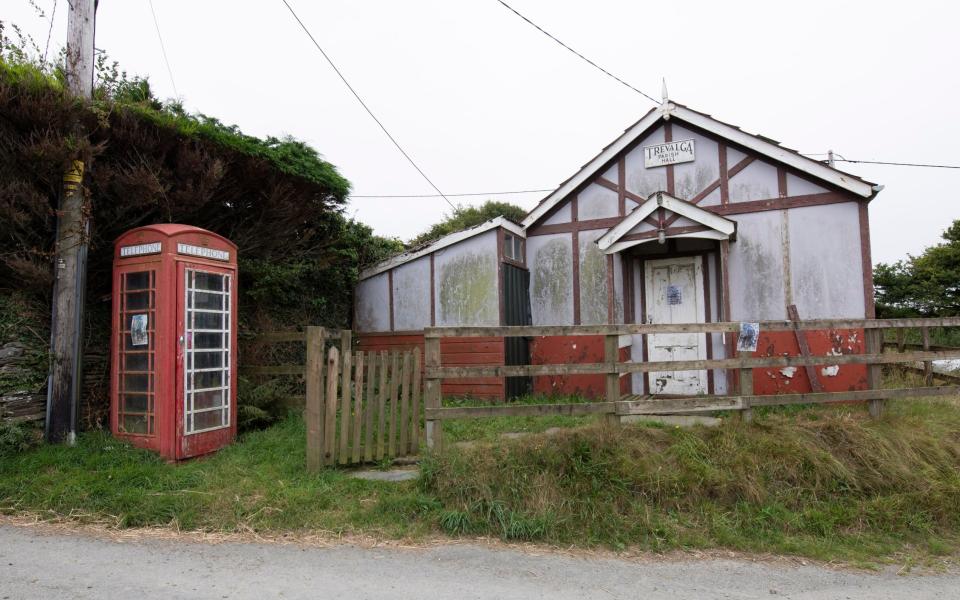
For a trust established in the present day, a Royal lives clause tied to the Queen would mean it will be wound up 21 years after the death of her last descendant - whoever lives the longest out of her four children, eight grandchildren and 12 great-grandchildren, the youngest of whom is 11-month-old Sienna Mapelli Mozzi, daughter of Princess Beatrice.
Any descendants born after the establishment of the trust would not be counted.
Lawyers for Trevalga claim this clause is not valid, because the trust which owns their home is charitable and so can continue indefinitely, in perpetuity.
“All of that is not relevant, because [it’s a] charity”, said Penelope Byatt, a charity lawyer at Charles Russell Speechlys, which is advising the village. “Many charities do carry on for hundreds of years ... They’re not subjected to this requirement.”
‘One-of-a-kind community deserves protection’
The community has the support of local MP Scott Mann, who has appealed to the Charity Commission on its behalf and organised a meeting between the watchdog and trustees next month.
“We got in touch ... to ask them whether the trustees had the legal right to discharge the estate as they were set up,” he said.
“This is a one-of-a-kind community and it does deserve some protection. We have significant challenges with housing in Cornwall anyway with the buy-to-let market and Airbnbs and we’re doing everything we can.”
In a statement, the trustees said: “The local MP Scott Mann has shown interest in Trevalga and facilitated a meeting between the trustees and representatives of the Charity Commission. We expect this to happen in early September. Any further statement prior to that meeting would be inappropriate.”
A spokesman for the Charity Commission said: “We are aware of concerns about the proposed sale of the Trevalga estate, and understand the distress and uncertainty within the community. We are looking into the matter urgently, to seek assurance that the trustees of the Gerald Curgenven Will Trust are acting in line with their legal duties and responsibilities, and to determine whether there is a further role for us as regulator in this case.”
A spokesman for Savills said: “The trustees have, for some time explored thoroughly the future of the estate within the trust structure that binds them and have concluded it is time for there to be a new owner not so constrained. This decision is based on both legal and economic grounds and will not be reversed.”
CORRECTION: We originally reported that Gerald Curgenven wished the Manor of Trevalga to make income for Marlborough College. The article has been amended to reflect the fact that whilst the Manor of Trevalga was left in trust to Marlborough College, the trust was created so the estate could be preserved and improved 'and as far as possible not sold or broken up'. We apologise for the error and are happy to correct the record.

 Yahoo News
Yahoo News 
